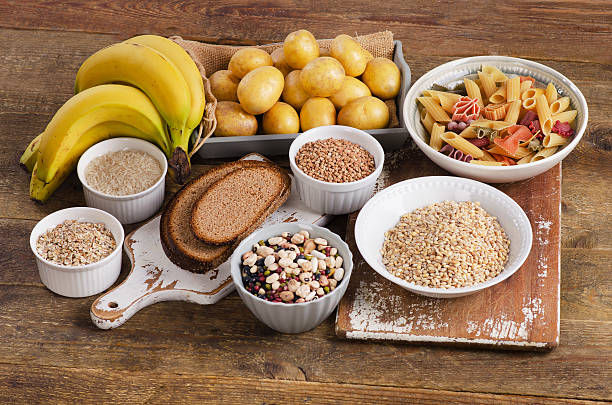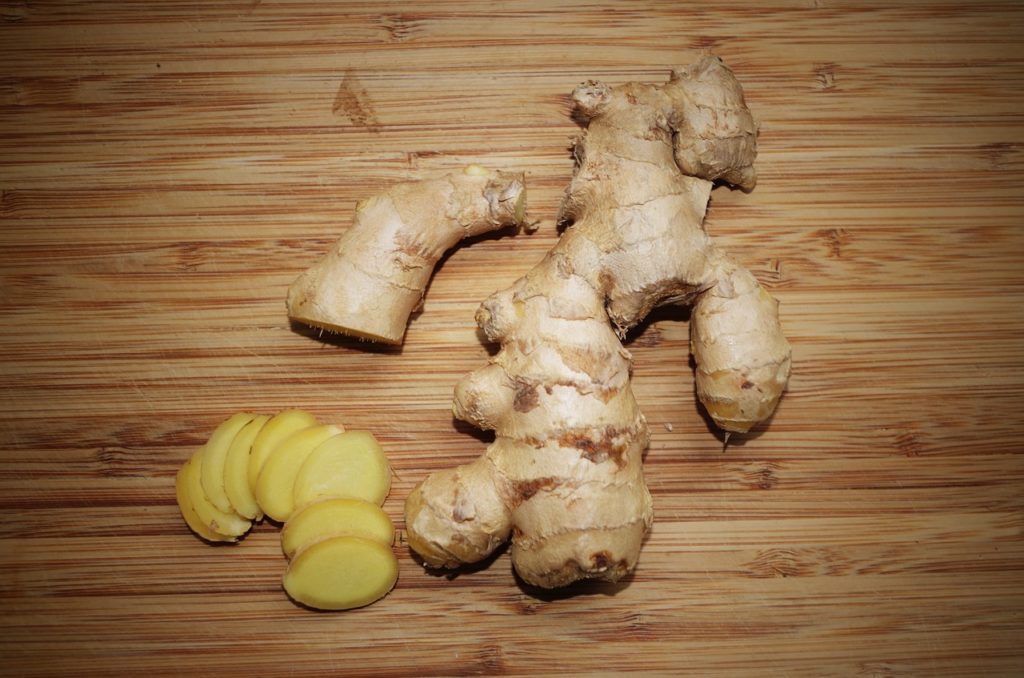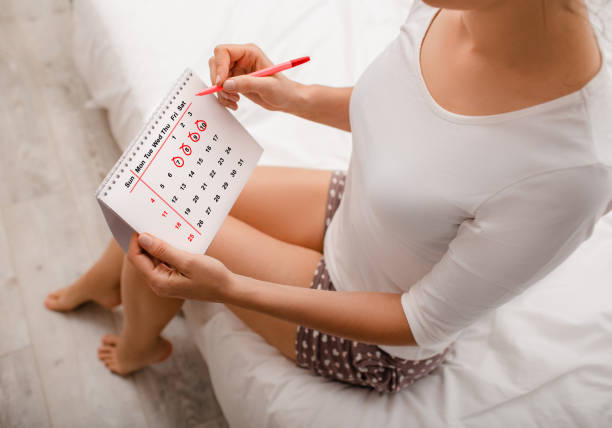The fluctuations in symptoms, menstrual flow, and overall duration usually don’t cause concern. Diet, stress, and aerobic exercise can affect the glands that regulate the body’s hormone balance, affecting your monthly periods. Health conditions also plays a significant role in causing menstrual irregularity.
You should find out how to get a fluctuating period back on track with lifestyle changes and supplements and foods without drugs.
Irregular periods home remedy to try at home
To regulate periods, you must not go for Over-the-counter drugs or immediately see a doctor. This condition is caused by several underlying health conditions that subject your system to hormonal imbalance. Consider the remedies below for regular menstrual flow. However its advisable to seek advice from healthcare professional if the symptoms persist.
Avoid free use of birth control pills

There are several ways of controlling birth, that you can inquire from your healthcare professional. But the free use of the over-the counter birth control drugs have a tendency to affect your hormonal levels leading to irregular periods.
Maintain a healthy weight to manage irregular period.
Studies poise that body weight changes can have an impact on your menstrual cycle. Overweight women are more likely to experience irregular menstrual cycles and heavier bleeding and menstrual pain than women of a healthy weight. This is because fat cells lack hormones and insulin.
So, if you’re obese or overweight, you should consider losing weight to improve irregular periods.
Extreme loss of weight or being underweight, on the other hand, can cause irregular menstruation. Eating a meager diet without sufficient nutrient supply will stress your pituitary, adrenal glands, and hypothalamus.
These glands control your body’s hormonal balance, affecting your menstrual cycle. If you would want to maintain regular periods, keep a healthy body weight
Consult your doctor if your weight is interfering with your menstrual cycle. He can assist you del with excess weight.
Change the low-carb diet

Inadequate carbohydrate intake can result in abnormal uterine bleeding, known as amenorrhea. Low carbohydrates in the diet may impair thyroid gland function while lowering leptin levels in your body. Leptin is a hormone secreted by fat cells that aid in regulating reproductive hormones.
So, when looking for ways to remedy your period disorder, nutritional requirements of 220 to 400 grams of carbohydrates per day. Therefore, carbohydrates must account for 40 to 70 % of your cumulative daily calories.
Do exercise regularly
Regular exercise has numerous advantages, including reducing premenstrual syndrome symptoms and menstrual cramps.
So, if you want to reduce symptoms naturally, you should get 30 minutes of exercise daily, such as running, cycling, walking, or swimming. However, strenuous exercise can disrupt your menstrual cycle by preventing or delaying your period. Exercise will also help you lose weight naturally.
Manage your fiber intake
High dietary fiber has many health benefits in the body. It lowers hormonal concentration in the body, such as:
-Estrogen
-Progesterone
-Follicle-stimulating hormones
-Luteinizing hormone
These hormones are also important in reproduction. Therefore, too much dietary fiber can affect ovulation, causing periods to be late or skipped entirely. Lowering the amount eaten is advised, but few scientific studies back this idea. Some recent studies found that fiber does not affect ovulation or menstrual cycles. Medically reviewed publications suggest 20-35 grams of dietary fiber daily.
It would be best if you get enough fats
Getting sufficient fats may help with hormonal levels and ovulation. Polyunsaturated fatty acids are the most ideal.
Common sources of these PUFAs include vegetable oils, flax seeds, and walnuts.
Eat papayas and pineapples
These fruits may aid in period regulation.
Carotene, which helps with estrogen levels, is found in papaya. It also aids in the contraction of the uterus.
Pineapples contain bromelain enzyme, which aids in blood circulation and produces blood cells like red and white blood cells.
Ensure good sleep
Menstrual problems, particularly PMS, can make it difficult for many women to sleep, exacerbating the symptoms. Develop good sleep hygiene if you will curb irregular periods.
Take vitamin supplements
Another study found that it effectively treats menstrual irregularities in women with poly cystic ovarian syndrome is through vitamin supplementation.
A 2018 study found that irregular periods are associated with low vitamin D levels and that taking vitamin D may help regulate the menstrual cycle. Vitamin D supports healthy menstrual cycle.
Other additional health benefits of vitamin D include lowering the risk of certain diseases, aiding in weight loss, and alleviating depression.
Vitamin D is commonly added to foods such as milk, cereal, and other dairy products. You may also obtain vitamin D through sun exposure or supplementation.
Another study found that women who took 40 mg of vitamin B-6 and 500 mg of calcium daily had fewer PMS symptoms.
Vitamin B may also aid in the regulation of your menstrual cycle, but more research is needed to confirm these claims.
It may also reduce the risk of premenstrual symptoms. A 2011 study discovered that women who consumed vitamin B-rich foods had a significantly lower chance of PMS.
Manage emotional stress
Stress is associated with hormonal imbalance in the body. Scientific researchers have discovered that the adrenal glands secrete cortisol and progesterone in response to stress. While the release of progesterone may temporarily alleviate tension or anxiety, it also disrupts your normal cycle. Emotional stress is also linked to primary dysmenorrhea.
Use ginger

Although there is no scientific evidence to support the use of ginger as a home remedy for irregular periods, it is widely used. Ginger appears to have additional menstrual benefits like easing period pain and menstrual bleeding.
Taking up to 2,000 mg of ginger powder at the onset of your periods has a significant impact on treating painful periods and is highly beneficial for women.
A study of 92 women who had heavy menstrual bleeding discovered that taking ginger could help reduce the amount of blood lost during menstruation. More research is needed because this was a small study that only looked at high-school-aged girls.
Use Cinnamon to regulating menstruation and menstrual pain
Cinnamon can help you have a more regular menstrual cycle. More so in women with polycystic ovary syndrome (PCOS), with high insulin levels and irregular menstruation.
It aids in regulating insulin levels in the body, which can have an impact on other hormones and the menstrual cycle.
Cinnamon may also help relieve pain in women who have painful menstrual periods.
It can also help with nausea and vomiting caused by primary dysmenorrhea.
Inositol
It is a naturally occurring substance in the body similar to vitamin B. It can be found in food varieties such as citrus fruits, legumes, and beans.
Inositol controls how the body uses insulin. It also influences other hormones, such as FSH. It also helps with normal ovary functions and the resolution of irregular periods.
In women undergoing medical treatment for infertility, taking inositol can improve ovulation and pregnancy rates.
Drinking apple cider vinegar
A 2013 medical study found that taking one tablespoon of apple cider vinegar may reverse polycystic ovary syndrome. Still, more research is needed to validate these findings because this study only included seven participants.
Use turmeric supplements
Turmeric has numerous health benefits, including inflammation reduction and mood enhancement. This is because of the compound curcumin in turmeric root. Taking curcumin supplements can help reduce PMS symptoms due to their various effects.
Make sure that you’re getting enough folate
Folate encourages regular ovulation and higher progesterone levels in the second half of the menstrual cycle, which may aid fertility.
The current recommendation is 400 micrograms daily. Your doctor may recommend more depending on your body requirements depending on your medical history.
It also aids in weight loss and lowers blood sugar and insulin levels.
Apple cider has a bitter flavor that some people may find difficult to tolerate if you want to try drinking it but find the taste difficult to take.
You can dilute it with water and a tablespoon of honey.
Try castor oil
According to studies, castor oil can affect menstruation. It also reduces inflammation, which may alleviate pain and cramps during menstruation.
Moist apiece cotton cloth with castor oil, then apply the cover with plastic or towel on your lower abdomen. Apply a hot towel or heating pad over the towel for 45 minutes to one hour.
Herbal supplements for irregular periods
Black cohosh
Black cohosh works by increasing the levels of the hormones estrogen, Luteinizing hormone, and Follicle-Stimulating Hormone.
It is has been used to reduce menopausal symptoms like vaginal dryness, night sweats, hot flashes, and menstrual cycle regulation
Chasteberry

This is a common herb for women’s health, particularly reducing PMS symptoms. It’s a good herb for women who desire to use home remedies for irregular periods.
Chasteberry aids in the reduction of prolactin while increasing the levels of progesterone in the body. Menstrual cycles may be more regular when these two hormones are in balance. Other peer reviewed studies suggests that chasteberry can help with fluid retention, breast pain, and depression.
Try using Acupuncture
According to traditional Chinese medicine, Acupuncture can balance energy flow in the body. This may help to regulate periods and alleviate premenstrual syndrome (PMS) and painful menstruation symptoms. As a result, some women looking for ways to treat irregular periods without drugs use this method.
Some studies have shown Acupuncture to lower FSH levels, restart menstruation in women who had stopped having periods and reduce painful menstruation.
Symptoms of Irregular menstrual cycle
The average menstrual cycle is 28 days, but it can range from 24 to 33 days or even 35 depending on the individual.
Most women have 11 to 13 menstrual cycles per year. Bleeding usually lasts about 5 days, but it can last anywhere from 3 to 7 days.
It can take up to two years for menstruation to become a regular cycle. Most women’s menstruation is regular after puberty. The intervals between each period are regular.
However, the time between periods and the amount of bloodshed vary significantly for some women.
Changes in blood flow or the appearance of clots larger than 2.5 centimeters in diameter are also signs of irregular menstruation.
Many women try natural remedies to solve this problem without consulting a doctor.
What are the regular periods for women?
For healthy women, the cycle takes 28 days normally. However, there are a few variations of 1-2 days.
The period, also known as menstruation, is a phase of the menstrual cycle during which the uterine lining, known as the endometrium, sheds through the vagina.
Periods usually begin during puberty, between the ages of 12 and 16 years, and last until menopause, when women are above 40 years
What are irregular periods in women
If the monthly cycle lasts longer than 32 days or if the duration varies, then you have irregular cycle. Oligomenorrhea can occur due to changes in contraception method, hormone changes during menopause, and strenuous exercises.
Treatment for menstrual abnormalities during puberty and near menopause is not necessary. However, if irregular periods occur during the reproductive years, then you need medical attention.
What Causes irregular menstrual cycles?
There are many factors for this, but hormonal imbalance is the most related. The main hormones that regulate the menstrual cycle are progesterone and estrogen.
Hormonal balance changes
This happens due to life cycle changes that affect hormonal balance, such as puberty, pregnancy, childbirth, breastfeeding, and menopause.
The body goes through a lot of changes during puberty. It may take several years for the estrogen and progesterone levels to balance, and irregular periods are common.
Menstruation stops during pregnancy, and most women do not have periods while breastfeeding.
Women usually have irregular periods during their reproductive age, and the amount of bloodshed can vary. Menopause occurs when a woman goes 12 months without having a menstrual period. A woman will no longer have menstrual periods after menopause.
The use of contraception can result in irregular bleeding.
The IUD (intrauterine device) may cause heavy bleeding, whereas the contraceptive pill may cause spotting between periods.
When women first start using birth control pill, they may experience small bleeds that are generally shorter and lighter than normal periods. If you use the home remedies for irregular periods it will go away after a few months.
Changes that are associated with irregular menses
Obesity
Extreme weight loss
Bulimia and anorexia eating disorders
Wrap up
The information here is obtained from medically reviewed journals. There are several remedies for irregular periods, but you should see wellness professionals if none of the home remedies work.
Before seeking medical advice try to faithfully use the home remedies for irregular cycles here to regulate periods. Maintain a healthy lifestyle to keep a healthy hormone levels and suitable body mass index that are key in regulating periods.


Pingback: 11 foods to eat if you have irregular periods | GILEAD THERAPY
Pingback: Home remedies for Irregular Periods | GILEAD THERAPY
Pingback: Natural remedies for hormonal imbalance in females | GILEAD THERAPY